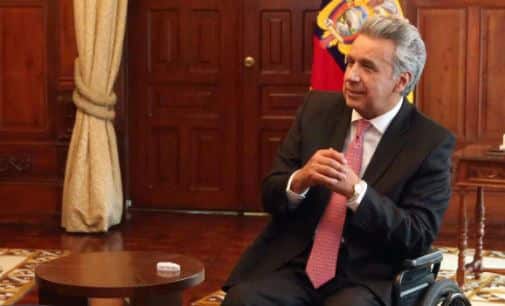The Latin American nation of Ecuador (pop. 18m) went to the polls on Sunday, its first vote since its government turned to neoliberal policies in 2017. In the two-round election system common in Latin America, the result is expected to set up a show-down between banker Guillermo Lasso, the establishment media apparatus supporting him, and progressive candidate Andrés Arauz, to be held in April.
In 2013, six years into the government of Rafael Correa, a column in The Guardian asked whether Ecuador was “the most exciting and progressive place on Earth.” Its policy achievements included 100% renewable energy, a mining and oil super-profits tax, laws against tax evasions and tax havens, raising welfare payments by 1,000%, and distributing a portion of corporate profits to employees.
In the meantime, its government’s reputation was undermined in the English-language media on all sorts of spurious grounds that relied on caudillo clichés rather than actual evidence. Once Assange left Ecuador’s London embassy, the country dropped out of the Anglophone news cycle.
Current President Lenin Moreno was elected as Correa’s successor in 2017 but quickly rolled over to US and International Monetary Fund (IMF) demands. This included a one-third cut to the health budget, which was cut by a further third after the Covid-19 pandemic had begun.
While dead bodies were stacking up in hospital corridors and cupboards and Guayaquil residents were burying their loved ones in paper coffins, Moreno’s government found USD $300 million to pay back bondholders.

Nationwide strikes and highway blockades in opposition to further IMF-instigated subsidy cuts left Moreno a lame duck. Despite his sub-10% approval rating and the fact that he is not even bothering to run for re-election, the US still inked a last-minute pre-election deal with him locking in $3.5bn in debt in exchange for privatization of state assets. It is a classic Third World story.
What does this story mean for outside observers? Writing about the Correa years, Mark Weisbrot of the Center for Economic and Policy Research said, “Ecuador’s experience shows that much of the rhetoric about how ‘globalization’ restricts the choices of governments to those that please international investors is exaggerated.
“It turns out that even a relatively small, middle-income developing country can adopt workable alternative policy options—if people can elect a government that is independent and responsible enough to use them.”
After four dark years, Ecuador may be on the point of doing so again.
Update: Preliminary results give a first-round victory to Arauz. His opponent in the second round will be either Lasso or possibly Andean indigenous candidate Yaku Pérez.
If you enjoyed this article, you can follow Christian on Twitter.